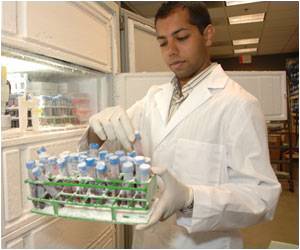Scientists have shown in mice models that overexpression of a gene associated with schizophrenia causes classic symptoms of the disorder that are reversed when gene expression returns to normal.

They found that when elevated, mice were hyperactive, couldn't remember what they had just learned and couldn't ignore distracting background or white noise. When they returned neuregulin-1 levels to normal in adult mice, the schizophrenia-like symptoms went away, said Mei, corresponding author of the study.
While schizophrenia is generally considered a developmental disease that surfaces in early adulthood, Mei and his colleagues found that even when they kept neuregulin-1 levels normal until adulthood, mice still exhibited schizophrenia-like symptoms once higher levels were expressed. Without intervention, they developed symptoms at about the same age humans do.
"This shows that high levels of neuregulin-1 are a cause of schizophrenia, at least in mice, because when you turn them down, the behavior deficit disappears. Our data certainly suggests that we can treat this cause by bringing down excessive levels of neuregulin-1 or blocking its pathologic effects," Mei said.
Schizophrenia is a spectrum disorder with multiple causes - most of which are unknown - that tends to run in families, and high neuregulin-1 levels have been found in only a minority of patients. To reduce neuregulin-1 levels in those individuals likely would require development of small molecules that could, for example, block the gene's signaling pathways, Mei said.
Current therapies treat symptoms and generally focus on reducing the activity of two neurotransmitters since the bottom line is excessive communication between neurons.
Advertisement
The mice are born expressing high levels of neuregulin-1 and giving the antibiotic restores normal levels.
Advertisement
Neuregulin-1 is essential for heart development as well as formation of myelin, the insulation around nerves. It's among about 100 schizophrenia-associated genes identified through genome-wide association studies and has remained a consistent susceptibility gene using numerous other methods for examining the genetics of the disease. It's also implicated in cancer.
The researcher appeared in the journal Neuron.
Source-ANI















